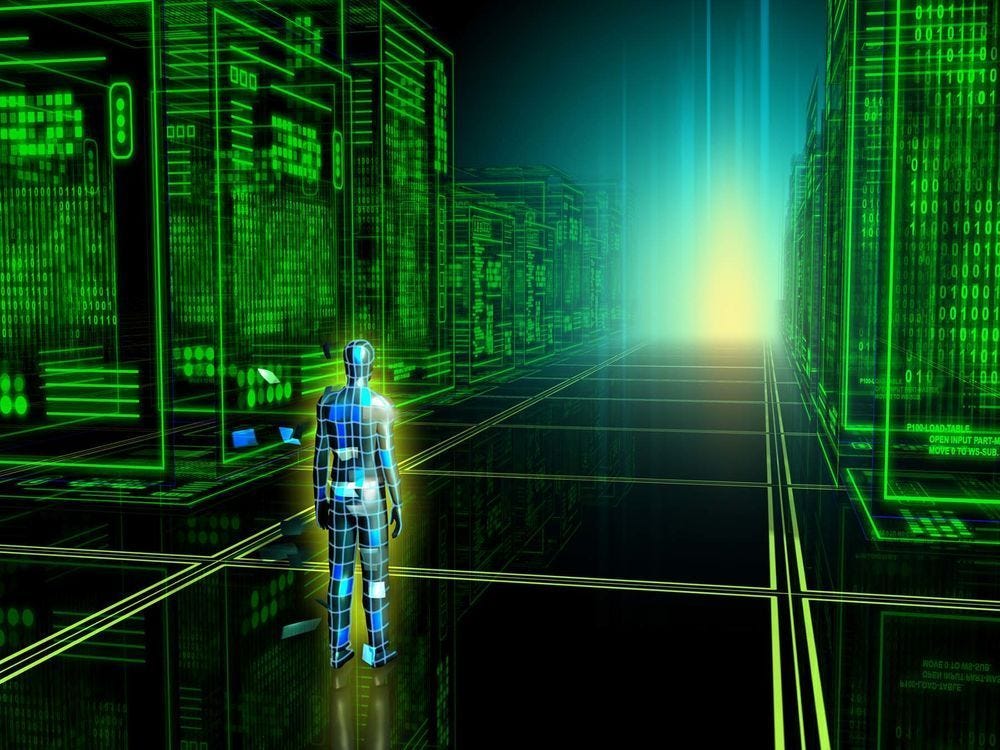Chinmaya Madan Believes AI is the Bedrock of Future Technology – This is Why

Chinmaya Madan, the Data Science Program Manager for Microsoft, believes that AI (artificial intelligence) is the future of technology and software development. He advises that it is already widely used today to make life better, reduce human error, and make roads safer. We have no idea how far AI can take us as a society because there are things we still haven’t dreamed up yet. But why is AI such a big deal?
How is AI Being Used Today?
There are few industries today that haven’t been touched by the power of artificial intelligence. The following industries represent a few quick examples.
- AI is commonly used to help with triage and prioritization of care in emergency care, is used to assist with medical imaging, and is sometimes used to provide reports that compile lab results, symptoms, etc. to generate a list of possible conditions. While AI is being used in healthcare, there is great debate about the ethics of doing so — with great points made on both sides. The ultimate goal is to provide the best possible patient outcomes without sacrificing the human experience or patient privacy. AI can help with these things but will never replace physical healthcare providers for the human side of things. They can help remove human error from the equation, which may ultimately be a cause for celebration.
- Cars on the road today use AI for a wide range of purposes, including adaptive cruise control, personalized seat and mirror positions, lane departure warnings and corrections, and other advanced safety features. While the implementation of AI in the automotive sphere has not been without challenges, the effort remains strong to improve safety on the roads by improving automotive AI.
- AI is used in manufacturing for predictive maintenance, to keep machinery and robots operating optimally, and to reduce unexpected and unnecessary downtime. AI is increasingly used to predict design failures, assess quality in product manufacturing, and inventory management.
- Chatbots are widely used for informational purposes as well as customer service on retail websites. Some retail stores have even adopted cashier-less checkout systems that use AI extensively to identify purchases and charge accordingly. In fact, chatbots can reduce customer service costs for businesses by as much as 30 percent while providing 24-hour customer service, delivering instant responses to queries, and getting answers to basic consumer questions.
- Home security. AI is widely used in smart home security systems. It can be used to turn on lights at certain times, to allow delivery drivers to place packages inside the home or garage, to lock and unlock doors remotely, and even to arm or disarm your home alarm system.
- Cybercrimes, ransomware attacks, and malicious hacking are problems on everyone’s minds. Using AI to detect potential threats raises threat detection from an average of 90 percent of threats detected to 95 percent. When you combine traditional methods with AI, the rates edge closer to 100 percent while minimizing the frequency of false negatives.
From advanced safety technology in cars currently on the road to personal “assistants” like Siri and Alexa and even predictive technology used by the music app, Pandora, and streaming services like Netflix, AI is a way of life in the modern world.
Businesses of all shapes and sizes are using predictive “chatbots” to answer customer questions when employees are out of the office. You’ll see these chatbots deployed on car dealership websites, banking websites, and countless others. These chatbots can be used to answer customer questions, get vehicle details, assist people with opening checking accounts, provide warranty information, and handle countless other tasks that would traditionally have been left to someone in customer service to manage. Additionally, they can be programmed to connect visitors with a salesperson or team member if they are unable to provide the necessary support.
AI is Science, Not Science Fiction
While the roadways aren’t yet filled with driverless vehicles, that is something that is on the horizon to display the power and potential benefits AI offers society. Think of what a difference the act of freeing up the time spent driving during the daily commute for more productive or personal pursuits.
There are already semi-autonomous cars on the road today and many states are passing laws related to these “driverless” vehicles. A sure sign that these cars are, in fact, becoming a reality. It won’t be long until they are widely dispersed across society.
There are many who believe that AI will serve a key role in identifying diseases and cures of the future, transforming healthcare just as it has transformed the idea of personal assistants.
Of course, science fiction has a love-hate relationship with artificial intelligence. The reality of AI is far less sinister in its current applications. In fact, AI is making life easier for everyone. While we don’t have our own version of Rosie, the Robot from the 1960s cartoon The Jetsons, we do have a healthy selection of robotic vacuums, robotic lawnmowers, smart microwave ovens, and even smart dishwashers that use AI to enhance their features and product offerings. Plus, home thermostat systems like Nest, use artificial intelligence to predict the temperatures you want in your home based on various factors.
All these things work together, according to Chinmaya Madan, to create a perfect storm for growth with the use of AI and its potential to create future tech we haven’t yet begun to dream of.